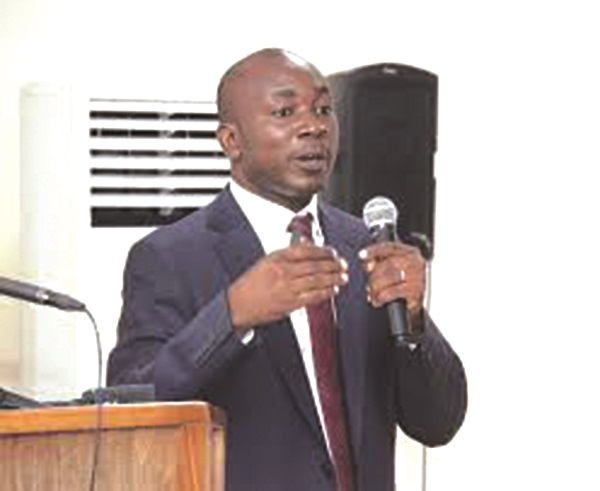
Measures to tackle economic challenges – Prof. Bokpin
A Professor of Finance, Prof. Godwin Alufar Bokpin, has said the measures proposed by the government to tackle the challenges confronting the economy are insufficient to return it to the path of stability.
Prof. Bokpin explained that the Finance Minister, Ken Ofori-Atta’s, proposals on expenditure cuts and revenue revitalisation were short-term-minded and lacked the ability to regain the confidence of investors for the economy to stabilise.
In an interview with the Graphic Business on March 24, in reaction to the raft of measures announced by the Finance Minister, Ken Ofori-Atta, to reboot the economy and cushion the citizens after huge debts, weak revenue and rising prices of crude oil and other commodities pushed the deficit and inflation to unsustainable levels while constraining growth.
The economist with the University of Ghana said Mr Ofori-Atta also fell short of announcing credible measures to boost revenue generation necessary to bridge the funding gap for the deficit to fall.
He noted that issues of compliance and roping more people into the tax bracket needed to receive more attention, especially at a time when the economy was constrained from borrowing.
Measures
The minister said the measures, which were expenditure-led, included cutting public spending by up to 20 per cent and discretionary expenditures by 10 per cent.
Mr Ofori-Atta said expenditure cuts would result in savings amounting to GH¢3.5 billion.
Among other things, the Finance Minister said fuel coupon allocations to government appointees would be cut by 50 per cent. He also announced the placing of a moratorium on foreign travels as well as the purchase of new vehicles.
Beyond that the minister said the government was subsidising fuel prices by GH0.15 per litre through the reduction of some margins that accrue to state institutions in the downstream petroleum sector.
Reduce ministers
Reacting to the measures in an interview, Prof. Bokpin said while they were relevant, the measures lacked the ability to address the challenges.
He said the government could have taken advantage of the crisis to reduce the size of government, request a comprehensive review of social programmes from independent institutions and also propose strong measures to boost revenue collection.
“This is not enough and for me, it is far below expectations.”
“This is a good crisis that the country should be taking advantage of to make some long-term reforms, such as reducing the number of ministries,” Prof. Bokpin said.
“Can the current economy take care of the current size of government? The answer is no.”
“So, we can take advantage of this crisis to reduce the size to around 60 ministers and also urge the Legislature to follow suit,” he said.
Independent review
He added that the government could take advantage of the current situation to commission the National Development Planning Commission, the Institute of Statistical, Social and Economic Research (ISSER) of the University of Ghana, Legon, or any of the other public universities to review the various social programmes with emphasis on value for money.
He said such an action would provide the government with objective view on how to address the fiscal pressures emanating from such social programmes.
According to him, the special programmes were an avenue for the misappropriation of funds, hence the need for a thorough review into their structure and essence at a time when the economy was challenged.
Prof. Bokpin, however, said the Free Senior High School (SHS) programme should be protected irrespective of the outcome of any review.